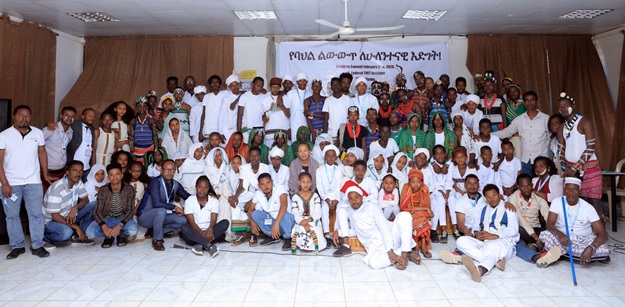
Recently, a children’s summit was organized in the capital by the Pestalozzi Children’s Foundation (PCF), a nongovernmental Swiss based organization that works on educational quality and accessibility. The summit was organized for the third time aimed at ensuring peace in schools and nurturing positive mind that can perceive others positively and receive education.
The foundation launched teaching intercultural education aftermath of the Second World War. Facilitating education and better life to orphans rescued from the war was the major reason to the establishment of the organization. Therefore, it has better experience to develop commonalities among diverse population and ensure peace.
The participants of the summit have been taking the training of intercultural education including the meaning and effects of discrimination, tolerance, mutual existence, and others. Most people unknowingly engage in discrimination. “That’s why we organize such trainings and summits. And we hope the students will have hospitable interaction and tell their classmates and peer mates about what they have learnt from the training when they back to their respective schools and villages,” said PCF Country Director Mihret Tesfay.
The foundation vows the intercultural education shall be applied across the country like a common course as it is a solution to country’s conflicts induced from mistreatment of diversity.

Escalation of conflict incidents has been affecting some parties of the country like Harar and Dire Dawa. Conflict occurs due to mistreatment of diversity and the foundation is looking for possibilities to solve problems related to conflicts by focusing on commonalities from the ground level, as to Mihret. PCF’s intercultural education plays a significant role in pacifying schools by creating a phenomenon that helps to eliminate stereotype and prejudice.
This year, the foundation is working in the capital to address the intercultural education and select the city [Yeka and Kolfe keranyo sub-cities] as a melting pot of diversities. Casually, the children from the two sub-cities are displaced people, child of factory labors, and other low income society, as to the director.
The foundation has got positive response from Ministry of Education as per its suggestion to incorporate the course in the country’s curriculum. “We wish the course will be given as civic and ethical education. We hope the government will incorporate intercultural education in the national education policy so that it will be given to students in a formal system. We are keen to support the effort as we have trained some 11coaches to expand the education,” she said.
The children’s summit helped the foundation to aware stakeholders about the significance and the functionality of the education to be downward for better application and progress by getting institutional implementation across the nation. So far, the foundation trained about 39,000 students and it wants the government to scale it up in a regular basis. The head office of the foundation is hopeful to push efforts in the area and it will launch the fifth round intercultural education plan of 2020 within three months to support ten to twenty schools, according to Mihret.
The intercultural education helps to develop cultural exchange and mutual existence. The foundation support in this regard is crucial to know each other not only the students but also to teachers and their parents, believed Addis Ababa Bureau of Education Ethiopian Center for Development Coordination Supervisor Andualem Tesfaye.
The trainings and workshops were mainly focused on commonalities to develop unity than difference. The training is more about approach of education not on content and it is helpful to ease the learning and teaching schemes between by smoothing interactions between teachers and students or among students.Therefore, it shall be implemented as learning approach than type of courses, he noted.
PCF has been working in Ethiopia for more than 30 years to ensure accessibility and quality of education in more than 60 schools across the country and mainly located in peripheral areas. According to Mihret, the foundation has 12 global projects and Ethiopia is the leading nation to teach by more than 35 mother tongues. “And I am proud of that”.
The foundation has trained more than 1000 teachers to develop their skills and provide better teaching that interact with students. Currently, it is working to curb the teachers’ shortage in Afar state by giving training to recruited literates from the community. “We are working in this system in Afar State to curb shortage of teachers in Afar language.”
In Argoba, Amhara state, there is high number of dropouts due to child labor. And the foundation is working with parents and trains them about education to stop withdrawing their children.
Generally, promoting intercultural education will help nation to get relief from the consecutive ethnic related conflicts in schools that caused a number of life lost, physical injuries and withdrawals. It also helps to build a positive mind among the generation to be conscious both for education and to live together with others in the long run.
The Ethiopian Herald February 18/2020
BY YOHANES JEMANEH





